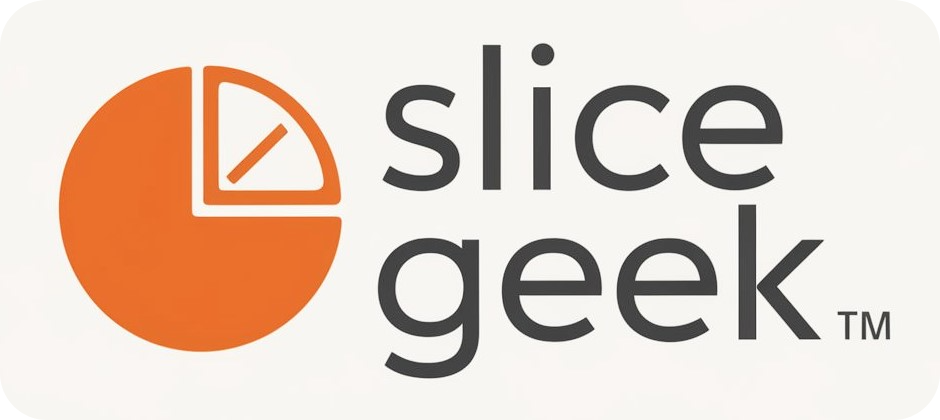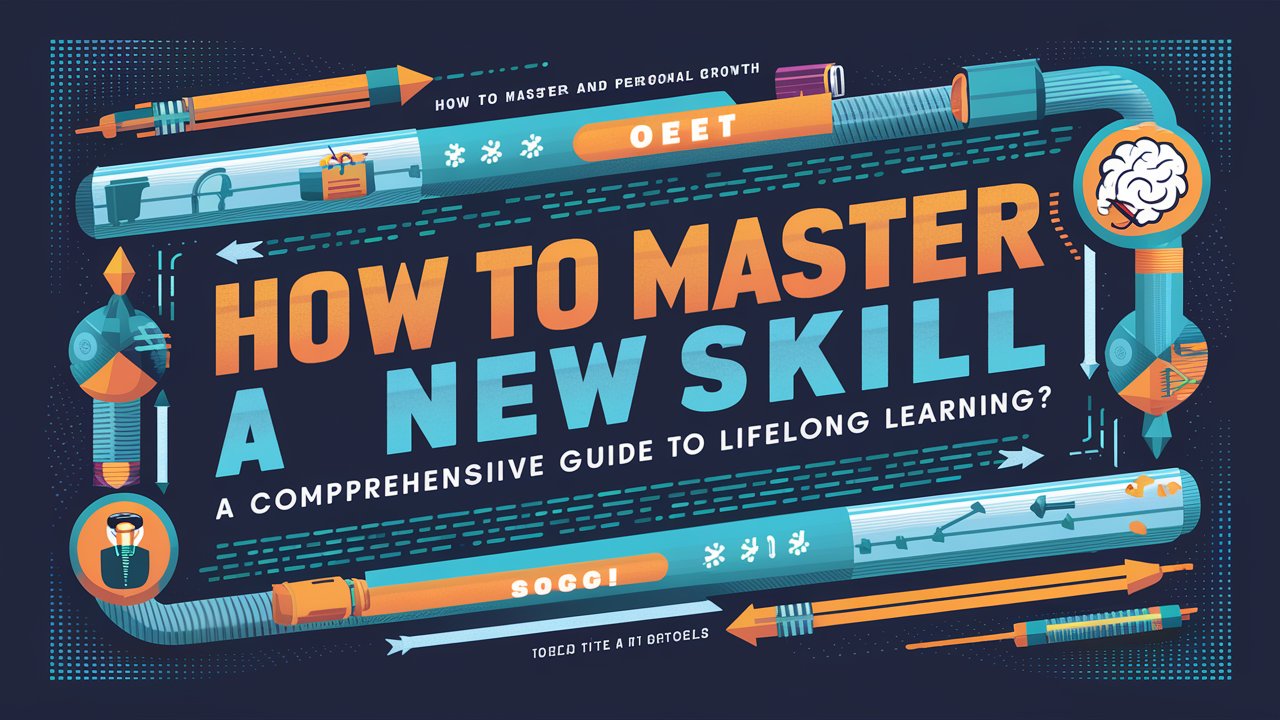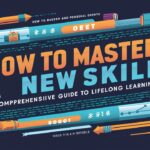In today’s fast-paced world, the ability to learn new skills quickly and effectively is more valuable than ever. Whether you’re looking to advance your career, start a new hobby, or simply keep up with the ever-changing landscape of technology and culture, mastering a new skill can open doors to new opportunities. However, learning something new can often feel daunting, especially if you don’t know where to start.
This blog will provide you with a comprehensive guide on how to master a new skill, breaking down the process into manageable steps and offering tips to ensure your success.
1. Identify Your Motivation and Set Clear Goals
Before you dive into learning a new skill, it’s crucial to understand why you want to learn it in the first place. Motivation plays a significant role in your ability to stay committed to the learning process. Are you learning this skill for personal enjoyment, professional growth, or another reason? Understanding your motivation will help you stay focused, especially when challenges arise.
1.1. Understand Your “Why”
- Personal Interest: If you’re learning a skill because it genuinely interests you, you’re more likely to enjoy the process and stay motivated. Personal interest often drives creativity and innovation, making the learning experience more fulfilling.
- Professional Advancement: Learning a new skill to advance your career can be highly motivating. Whether it’s acquiring technical expertise or soft skills like communication and leadership, professional growth is a powerful incentive.
- Problem-Solving: Sometimes, we need to learn a new skill to overcome a challenge or solve a problem. For example, learning coding to build a personal project or acquiring financial literacy to manage your finances better.
1.2. Set SMART Goals
Once you’ve identified your motivation, it’s time to set clear, achievable goals. The SMART criteria are a popular framework for goal-setting:
- Specific: Your goal should be clear and specific. Instead of saying, “I want to learn to play the guitar,” specify what you want to achieve, such as “I want to learn to play five songs on the guitar.”
- Measurable: Ensure your goal is measurable so you can track your progress. For example, “I want to practice guitar for 30 minutes a day” is a measurable goal.
- Achievable: Set a goal that is realistic given your current skills, resources, and time. Setting achievable goals prevents frustration and burnout.
- Relevant: Your goal should align with your broader objectives. If learning the guitar doesn’t align with your long-term goals or interests, you may struggle to stay motivated.
- Time-bound: Set a deadline for your goal. For example, “I want to learn five songs in three months.” A timeline creates a sense of urgency and helps you prioritize your efforts.
2. Break Down the Skill into Manageable Parts
When you look at a new skill in its entirety, it can seem overwhelming. One of the most effective strategies for mastering a new skill is to break it down into smaller, more manageable parts. This approach allows you to focus on one aspect of the skill at a time, making the learning process more structured and less daunting.
2.1. Identify Core Components
- Skill Deconstruction: Start by identifying the core components or sub-skills that make up the larger skill. For example, if you’re learning to play the guitar, core components might include learning chords, strumming patterns, finger placement, and music theory.
- Prioritize Sub-Skills: Determine which sub-skills are foundational and should be learned first. In the guitar example, you might start with basic chords and strumming before moving on to more complex techniques.
2.2. Create a Learning Plan
- Step-by-Step Plan: Develop a step-by-step learning plan that outlines the sequence in which you’ll tackle each sub-skill. This plan should include specific activities, resources, and timeframes for each step.
- Set Milestones: Establish milestones along the way to measure your progress. Milestones provide motivation and a sense of achievement as you complete each phase of your learning journey.
2.3. Use the “Chunking” Technique
- Chunking: This cognitive technique involves breaking down information into smaller, more digestible “chunks.” For example, when learning a new language, you might focus on memorizing a few vocabulary words each day rather than trying to learn an entire chapter at once.
- Practice in Short Bursts: Research shows that practicing a skill in short, focused sessions (often referred to as “distributed practice”) is more effective than marathon study sessions. Aim for 20-30 minute practice sessions with breaks in between.
3. Find the Right Resources and Tools
Access to the right resources and tools is essential for effective learning. With the vast array of information available today, it’s important to choose resources that align with your learning style and goals.
3.1. Online Courses and Tutorials
- E-Learning Platforms: Websites like Coursera, Udemy, and LinkedIn Learning offer a wide range of courses on virtually any subject. These platforms often provide structured learning paths, video tutorials, quizzes, and certificates upon completion.
- YouTube Tutorials: YouTube is a valuable resource for free tutorials on everything from cooking and DIY projects to coding and graphic design. The key is to find reputable channels with clear instructions and high-quality content.
3.2. Books and Guides
- Books: Reading books written by experts in the field can deepen your understanding of the skill you’re learning. Look for books that offer practical advice, step-by-step instructions, and case studies.
- Guides and Manuals: Many skills, particularly technical ones, come with user manuals or guides. These can be invaluable resources for mastering the basics and troubleshooting common issues.
3.3. Hands-On Practice Tools
- Software and Apps: Depending on the skill you’re learning, there may be specialized software or apps that can aid your practice. For example, language learners might use apps like Duolingo, while aspiring programmers might use coding platforms like Codecademy.
- Physical Tools: If you’re learning a physical skill, such as playing an instrument or woodworking, make sure you have the necessary tools and equipment. Quality tools can enhance your learning experience and lead to better results.
4. Practice Deliberately and Consistently
Practice is the key to mastering any skill, but not all practice is created equal. Deliberate practice involves focused, goal-oriented practice sessions designed to improve specific aspects of your performance.
4.1. The Concept of Deliberate Practice
- Focused Practice: Deliberate practice means concentrating on specific areas that need improvement, rather than simply going through the motions. For example, a pianist might spend an entire session focusing on a difficult passage rather than playing the entire piece repeatedly.
- Feedback Loop: Seek feedback on your performance, either from a mentor, instructor, or self-assessment. Feedback helps you identify areas for improvement and adjust your practice accordingly.
- Push Your Limits: Deliberate practice often involves stepping outside your comfort zone and tackling challenges that push your skills to the next level. This might mean attempting a more difficult exercise or setting a higher standard for your work.
4.2. Establish a Consistent Practice Routine
- Daily Practice: Consistency is crucial when learning a new skill. Aim to practice every day, even if it’s just for a short period. Regular practice helps reinforce what you’ve learned and prevents skills from deteriorating.
- Schedule Practice Sessions: Treat your practice sessions as appointments. Set aside specific times each day or week for focused practice. Consistency in scheduling can help you build a habit and make progress more steadily.
- Monitor Your Progress: Keep a journal or log of your practice sessions, noting what you worked on, what you struggled with, and what improvements you made. Reflecting on your progress can help you stay motivated and adjust your approach as needed.
5. Overcome Challenges and Stay Motivated
Learning a new skill can be challenging, and it’s common to encounter obstacles along the way. Understanding how to overcome these challenges and maintain your motivation is essential for long-term success.
5.1. Dealing with Frustration and Plateaus
- Embrace the Struggle: Frustration is a natural part of the learning process. Rather than seeing it as a sign of failure, view it as an opportunity for growth. Struggles often indicate that you’re pushing your limits and developing new abilities.
- Overcoming Plateaus: It’s common to hit a plateau where progress seems to stall. To overcome this, try varying your practice routine, focusing on different aspects of the skill, or seeking new challenges. Sometimes, taking a short break and returning with a fresh perspective can also help.
5.2. Stay Motivated Through Goal-Setting and Rewards
- Short-Term Goals: In addition to your long-term goals, set short-term goals that are achievable in a week or a month. These can help you stay focused and provide a sense of accomplishment as you reach each milestone.
- Reward Yourself: Celebrate your achievements, no matter how small. Rewarding yourself for reaching a milestone or overcoming a difficult challenge can boost your motivation and make the learning process more enjoyable.





